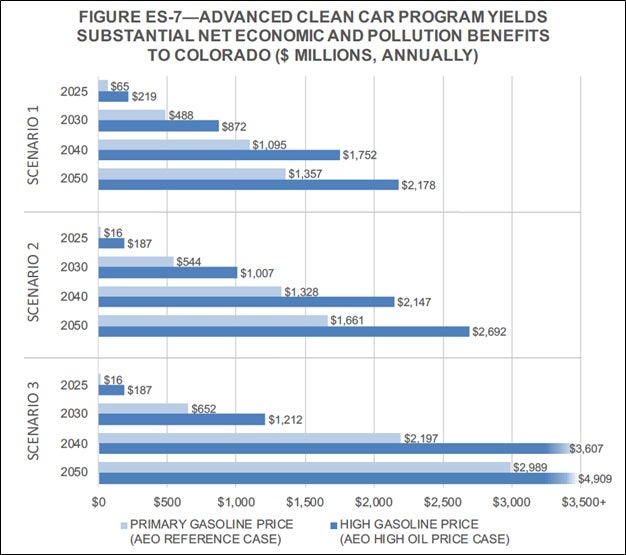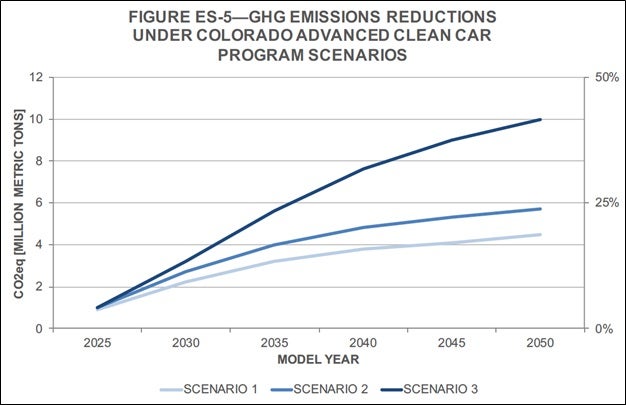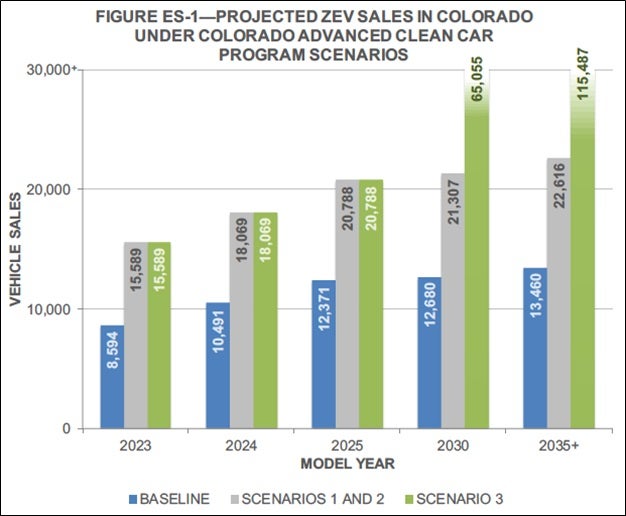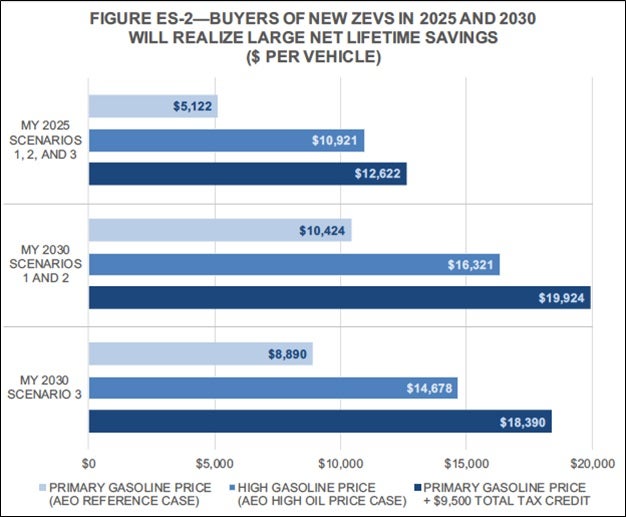(This post was written by EDF Attorney Laura Shields)
The numbers are in for Colorado’s proposed Zero Emission Vehicle (ZEV) program – it will cut climate pollution and save Coloradans millions of dollars.
This week, the Colorado Air Quality Control Commission is formally considering adoption of the ZEV program for model year 2023 through 2025 vehicles. (Colorado already adopted state Low Emission Vehicle standards last year).
What’s at stake for Coloradans?
This important clean air program means that, while no Coloradan has any obligation to buy or choose a zero-polluting vehicle, ALL Coloradans will have more models of zero-emitting vehicles to choose from if they want a cleaner car.
These clean vehicles will save Coloradans hard-earned money at the gas pump and will reduce dangerous climate pollution. They will also help reduce smog-forming pollution in all communities across Colorado, clean up Denver’s brown cloud, and lift the veil of haze pollution in our world-class national parks and wilderness areas.
In short, Colorado’s proposed ZEV program will mean healthier air, fuel cost savings, more vehicle choice and a safer climate for all Coloradans.
How the proposed ZEV program works
Colorado’s proposed ZEV program would require that automakers sell a certain percentage of zero-emitting vehicles every year.
If the program is adopted, Colorado will join 10 other states currently implementing clean car programs that include both low-emission and zero-emission vehicle standards. Adopting the program would also make progress toward achieving the pollution reduction targets established in the historic climate legislation recently adopted by the Colorado General Assembly and signed into law by Governor Jared Polis.
In testimony at today’s hearing, two auto industry groups, the Alliance of Automobile Manufacturers and Global Automakers, expressly supported adoption of a Colorado ZEV program (including some additional crediting flexibilities jointly proposed by the automakers and the Colorado Department of Transportation and the Colorado Energy office). The Alliance for Automakers stated in its hearing materials today that it is:
“Committed to vehicle electrification and working with Colorado; Fully support the CDOT, CEO, Alliance, and Global Automakers Joints Proposed Alternative Regulations; Recommend the AQCC adopt the Joint Alternative Proposal.”
Significantly, this is the first time automakers have supported state adoption of a ZEV program and reflects a growing consensus of the significant benefits these vehicles can deliver.
Benefits for Coloradans
EDF is part of a coalition of public health and environmental groups (including Western Resource Advocates, NRDC, Sierra Club, and the Southwest Energy Efficiency Project) that has been a formal party in the rulemaking. We’ve worked in support of Colorado’s adoption of a ZEV program that will deliver major climate, health and economic benefits for all Coloradans.
Our support is bolstered by a comprehensive analysis, commissioned by EDF, that found Colorado’s adoption of a combined clean cars program will save Coloradans up to $65 million per year in 2025 and $2.2 billion per year in 2040:

It will avoid one million metric tons of greenhouse gas emissions every year by 2025, and up to 7.6 million tons annually by 2040 – equivalent to taking more than 200,000 cars off Colorado’s roads in 2025 and almost 1.6 million cars in 2040:

It will also significantly reduce smog-forming pollution and particulate pollution, which are both dangerous to human health. And the pollution reductions will help address the negative impacts of climate change.
Coloradans are already experiencing rising temperatures that increase smog. The American Lung Association recently ranked Denver the 12th most-polluted city in the nation for smog forming pollutants, and Colorado has failed to meet both the 2008 and 2015 health-based National Ambient Air Quality standards for smog-forming pollution.
Our report also found that Colorado’s proposed program would:
- Increase sale of ZEVs by more than 8,400 vehicles in 2025 and more each year thereafter

- Save Coloradans owning a model year 2025 ZEV more than $5,000 over the course of vehicle ownership

An electric vehicle market analysis by MJ Bradley and Associates shows that Colorado’s proposed ZEV program would take effect during the same time period that automakers are introducing more electric vehicle models at declining costs.
MJ Bradley’s analysis concluded that the number of electric vehicle models for sale in the U.S. will increase from 51 to 80 between 2019 and 2022, and that electric vehicles will reach price parity with gasoline vehicles by 2025.
These and other major findings from the EDF and MJ Bradley and Associates analyses are synthesized in a newly released EDF fact sheet.
Broad support for the proposed ZEV program
With the extensive climate, health, and economic benefits this program would deliver for Coloradans, it is unsurprising that Colorado’s proposed adoption of a ZEV program is broadly supported by a large and diverse set of stakeholders. That includes the Alliance of Automobile Manufacturers and Global Automakers, as we mentioned earlier, and also:
“These heavily trafficked highways bisect Globeville and Elyria-Swansea, communities that for decades have suffered from acute pollution problems and a strikingly high incidence of respiratory illness, especially among children and low-income households. Adopting the Zero Emission Vehicle (ZEV) standards will accelerate Colorado’s transition to clean electric cars, which will significantly reduce air pollution and improve quality of life in these and other vulnerable communities.” – Environmental Justice Coalition which includes Elyria Swansea Neighborhood Association, Globeville, Elyria-Swansea Coalition and Colorado Latino Forum
“The Regional Air Quality Council (RAQC) supports the … adoption of revisions to Regulation No. 20 related to the California Zero Emission Vehicle (ZEV) program … which will result in emission benefits in the Denver Metro/North Front Range … ozone nonattainment area and beyond.” – Regional Air Quality Council (Lead air quality planning agency for Colorado’s ozone nonattainment area)
In addition, adoption of the ZEV program is supported by local governments and business leaders.
The Colorado Air Quality Control Commission will decide whether to move forward with adoption of the Colorado ZEV program this week.









